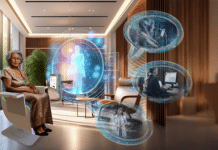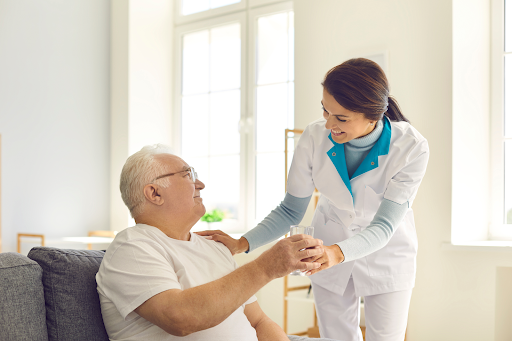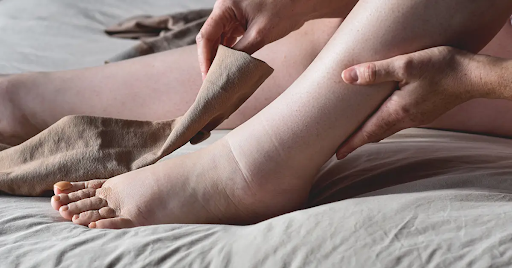Maintaining independence and safety as we age should be of utmost importance. In Canada alone, falls are the leading cause of injury among older adults. These instances can escalate quickly if the proper measures are not in place for seniors to contact help immediately. With the right medical alert device, you and your loved ones can know that if an emergency arises, help will be on the way shortly. However, not all devices are built the same. It is essential to decipher your needs and find a device with the right features to continue your healthy and active lifestyle.
Understanding Your Unique Health Needs
Heart conditions, diabetes, epilepsy, arthritis, and dementia are some of the most common ailments people struggle with as they age. With these conditions, a person may be more susceptible to accidents such as falling or needing reminders to take critical medication to keep their health in check. Other times, seniors will be very active and often away from home. Having a medical device that works on the go will protect you from unforeseen circumstances when you are out on your own. Finding a suitable device based on your unique needs will be critical to the effectiveness of the equipment.
Researching and Comparing
Consider taking a medical alert self-assessment quiz to understand your needs better. A 2-minute online assessment can help determine the right time for you to invest in a medical alert system. Even healthy, active, and independent individuals can benefit from taking extra safety precautions as they age. Additionally, it helps to give your loved ones peace of mind.
The results can be overwhelming when you do a simple Google search for medical alert devices. Between sponsored ads and shopping recommendations, it can be challenging to decipher your options and how they differ.
Look for reputable brands with high customer reviews and testimonials. Public reviews tend to be more unbiased as there is no incentive for reviewers to post. However, testimonials will give you more details about a user, their lifestyle and why they chose a particular product and service, providing more insightful recommendations when you go to make your purchase.
Also, ask friends, family and people in your community for recommendations. Not everyone uses a medical alert device, but many people have loved ones that do. First-hand accounts tend to be trustworthy, although remember that your needs may differ, so always consider factors unique to you.
Types of Medical Devices For Seniors
A medical alert device for seniors provides help at the push of a button. The top systems on the market now have automatic fall detection, two-way voice communication and GPS locating technologies. The help button format can be a pendant (worn around the neck) or a wristband connecting the user to the response centre once pressed. Once help is on the way and emergency contacts have been notified, the service will also follow up with the caller to ensure help has arrived. Carefully evaluating the features of different devices will help you make an informed decision. Below are a few key considerations:
Home Monitoring Devices
The home is where everyone should feel safest. A home monitoring system can help ensure seniors can maintain independence even if their mobility is decreasing. A comprehensive home monitoring system will have a personal alert button, pendant or wristband, and an in-home communicator to connect you to the response centre. The communicator provides widespread connectivity across your property and clear two-way communication.
Additionally, families may want to consider adding a check-in service for loved ones who live alone or when a regular caregiver is unavailable. If your loved one is in another location, possibly even a different time zone, you request a personable and readily available response associate to check in when you usually would. However, a check-in service can provide many calls a day as your loved one’s request.
On-The-Go Fall Detection
As an independent senior, having an emergency alert system to travel with you will be essential for staying safe. A neck pendant with GPS tracking, an integrated help button and automatic fall detection will be the most comprehensive solution available on the market. If you cannot get up and press the button for help in an emergency, the system is designed to recognize this and call for help on your behalf. With the integrated GPS, you do not have to worry about communicating back to the associate your location if you are unable.
Medication Management Tools
If you or a loved one are reliant on a certain medication for improving or maintaining quality of life, there is also a good chance that this medication needs to be taken on time. An automated medication management system can help mitigate forgetfulness, drastically improving patient outcomes and contributing to successful preventative care. A quality medication dispenser will have 1-3 months’ worth of medication with a lock mechanism to avoid losing any of the important medicines. Through either an alarm or SMS notification, you can be notified when it is time to take your medication each day. Additionally, more advanced solutions will connect these devices to response centres that will notify you when you miss a dose and can inform a contact close to you so they can check-in.
Adaptive Bathroom Equipment
You can even consider installing an alert system in high-risk areas such as the bathroom. For example, a call button positioned by the shower or toilet can ensure that help can come to you even if you are immobile. However, most personal medical alert systems will be waterproof, so you can wear them in the shower and bath. Consider also adding safety rails and assistive chairs to make high-risk areas a safer experience.
Factors to consider in choosing a medical device
Before investing in a medical device, be sure you are comfortable and informed about how it operates. Being able to try before you buy, or even having the device for a trial period, can make all the difference in successfully integrating the device into your lifestyle. When in doubt, consider asking for a second opinion from family, friends and medical professionals who are familiar with the technology. Once you have your device, be sure to follow best practices to keep it clean and operating effectively. Regularly wipe down the medical alert device with a damp, non-abrasive cloth and dry it thoroughly before subsequent use. Be sure to learn early how to change the battery in your device and proactively change it to avoid the pendant becoming inoperable.
Maintaining safety and independence is crucial for our well-being as we age. Comprehensive medical alert systems can help bridge gaps for safety risks and make a crucial difference in a senior’s ability to age in place. The right device or devices for your needs must fit seamlessly into your lifestyle, both at home and on the go. Consult a professional and speak to friends and family as you take this proactive step in maintaining safety and security into the golden years.

























